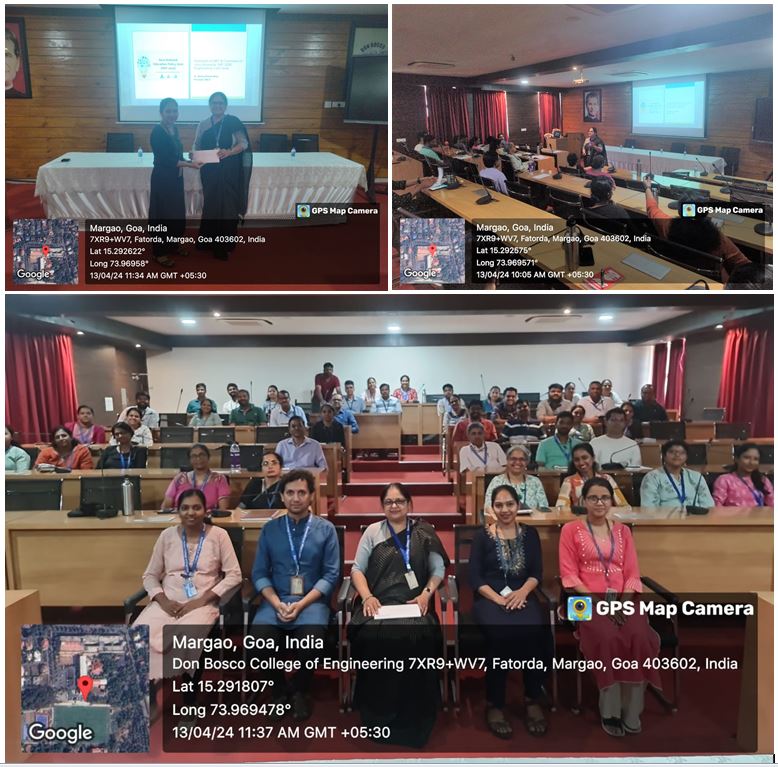A seminar on “Highlights and Overview of Goa University NEP Engineering Curriculum”

The Teaching learning & education technology (TLET) cell of our college (DBCE) organized a workshop on “Highlights and Overview of Goa University NEP Engineering Curriculum” on 13th April 2024. The session was delivered by the Principal of DBCE, Dr Neena Panandikar.
She highlighted the guidelines given in NEP 2020 for school education which emphasizes on 4 stages of education including foundational (5 years), preparatory (3 years), middle school (3 years) and secondary education (4 years). Furthermore, she provided insightful guidance on integrating NEP 2020 principles into higher education, advocating for a multi-faceted approach encompassing a flexible multiple entry/exit system, a dynamic multidisciplinary curriculum, the establishment of an academic bank of credit system, a heightened focus on research initiatives, fostering internationalization, mandating student internships, championing equity and inclusion, and introducing enriching ability enhancement courses. She also briefed us about new institutional architecture that is planned in near future under NEP 2020.
She also explained how credit system works in National Academic Repository. The teaching faculty were made aware about the number of hours assigned for theory, practical and internship. She emphasized the point that under the credit based semester system, the requirement for awarding a degree or diploma or certificate is prescribed in terms of number of credits to be completed by the students. Dr. Panandikar also detailed the working of an Academic Bank of Credit (ABC) that would digitally store the academic credits earned from various education institutes so that it facilitates multiple entry and exit.
The faculty members were also made aware of choice based credit system empowering students to select from a diverse array of prescribed courses categorised into disciplinary core, disciplinary minor, interdisciplinary minor, value added courses, ability enhancement courses and skill enhancement courses. Dr. Panandikar underscored that the 4-year programme may also lead to a degree ‘with Research’ if the student completes a rigorous research project in their major areas of study.
Concluding the session, Dr. Panandikar provided an overview of the Goa University NEP curriculum, equipping the teaching faculty with a comprehensive understanding of the forthcoming academic year’s course offerings.













 Visit Today : 631
Visit Today : 631